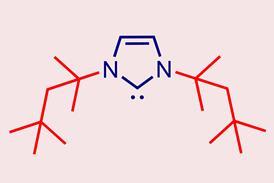Organic catalyst could cut the chlor-alkali process’s enormous appetite for energy

Cheap molecule achieves similar performance as existing costly metallic catalysts – but faces major questions about its stability
A new organocatalyst could cut the energy use of a vitally important chemical process – the chlor-alkali process. Yadong Li from Tsinghua University in China, and his team found that relatively cheap organic quinazoline-2,4-diones reduce the energy consumption of the process compared with expensive metal catalysts. If such a catalyst were adopted worldwide into by the chlor-alkali industry, it might save approximately 1.8–4.6% of the 150TWh it consumes each year, Li’s team finds. That would roughly equate to between three to nine days of average daily UK energy consumption. Other scientists say the catalyst’s stability still needs a lot of work before such energy savings could be realised.



